|

HOME |
ABOUT | INDEX |
NEWS |
FACEBOOK |
CONTACT
LABOR DAY
Celebrate American Workers
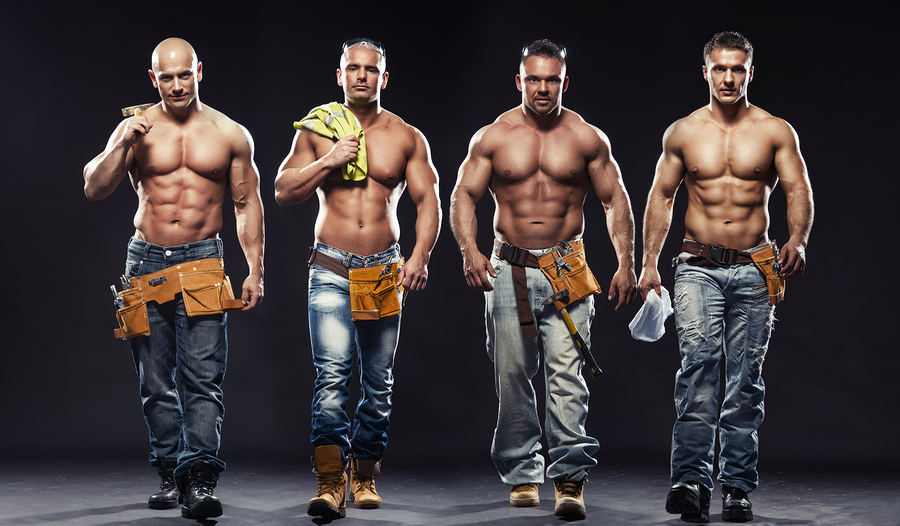
Business | Marketplace
Police|Fire|Rescue
Career|Workplace
Science|Technology
Sports|Athletics
Military

LGBTQ Workers
On Labor
Day we are reminded of the struggles of the worker's
rights movement and the accomplishments of labor unions
in the United States. This is also an opportunity
to give a big shout-out to the LGBTQ folks in the
workplace and their struggle against employment
discrimination.
It was the
Labor Movement that brought us... living wage laws,
child labor laws, health benefits, unemployment
insurance, pension benefits, workers' compensation,
weekends, grievance procedures, overtime pay, social
security, workplace safety, minimum wage, paid vacation,
parental leave, civil rights, equal pay for equal work,
and domestic partner benefits.
We
celebrate American laborers and workers and thank them
for their service.
Here's to truck drivers, construction workers, police
officers, farmers, teachers, cooks, sanitation workers,
musicians, barbers, firefighters, social workers, plumbers,
florists, accountants, soldiers, mechanics, technicians, janitors,
first responders, HVAC technicians, artists, factory workers,
electricians, lawyers, bricklayers, carpenters, line
workers, librarians, software engineers, painters, bus drivers,
miners, dancers, scientists, bartenders, nurses, welders,
salespersons, landscapers, pilots, financial advisors, masons,
writers, and more!
Work Related Stressors Among LGBTQ Workers
Rainbow-Collar Jobs: Occupational Segregation by Sexual
Orientation
LGBTQ Workers in the Labor Market
Info: LGBTQ
First Responders
Gays At Work...In the Closet
Supreme Court Landmark Decision: Illegal to Discriminate
Based on Sexual Orientation
LGBTQ Nation: Supreme Court Rules in Favor of LGBTQ
Rights in Landmark Decision
Advocate: Supreme Court Rules LGBTQ Discrimination is
Illegal
Info: LGBTQ
Workplace
History of LGBTQ in Policing
Build Out
Alliance: LGBTQ Inclusion in the Construction Trade
LGBTQ Firefighter Is Putting Out Fires And Stereotypes


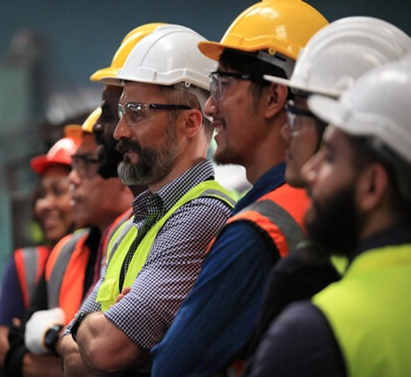
LGBTQ
Inclusion: Workers' Rights and the Labor Union Movement
The history and evolution of LGBTQ individuals in the
workers' rights and labor union movement is a testament
to the enduring struggle for equal rights and
recognition within the broader context of social
justice. We acknowledge and celebrate the milestones and
challenges faced by LGBTQ workers as they fought for
their rights, inclusion, and acceptance within labor
unions and the broader labor movement.
Throughout much of the 20th century, LGBTQ workers faced
significant discrimination and marginalization, not only
in society and the workplace, but also within labor
unions. Labor unions, while advocating for workers'
rights, often did not prioritize LGBTQ issues. This
early period was characterized by secrecy and the fear
of discrimination, as being openly LGBTQ could lead to
job loss, harassment, or even violence.
The turning point in the struggle for LGBTQ rights and
visibility came with the Stonewall Uprising in 1969. The
uprising, which began as a response to a police raid on
the Stonewall Inn in New York City, sparked a nationwide
movement for LGBTQ rights. Many of those involved in the
Stonewall Uprising were members of the working class,
and their involvement helped to bridge the gap between
the LGBTQ and labor movements.

NCLR: Workers’ Rights Are LGBTQ Rights
HRC: The Lesson of Labor Day
Working Together: The Labor Movement and the Gay Rights
Movement
Queer Activism in the Labor Movement
Info: LGBTQ in the Military
Long, Powerful History Between Labor and LGBTQ Activists
CBS News: Supreme Court
Ruling Protects LGBTQ Workers
SCOTUS Pro-LGBTQ Ruling:
Activists, Politicians, Celebs Rejoice
Responders for Pride
LGBTQ Stories: New York City Fire Department
LGBTQ History Pathway to Progress: The Founding of Pride
At Work
In the aftermath of Stonewall, LGBTQ workers began to
organize and demand better working conditions and
recognition within labor unions. Activist groups like
the Gay Liberation Front and the Lesbian and Gay Labor
Alliance played pivotal roles in advocating for LGBTQ
workers' rights.
As the LGBTQ rights movement gained momentum, several
labor unions began to acknowledge and address the
discrimination faced by LGBTQ workers. Some unions, like
the American Federation of Teachers (AFT), were at the
forefront of the fight for LGBTQ inclusion. AFT became
the first national labor union to support LGBTQ rights
openly, setting a precedent for others to follow.
The labor movement and LGBTQ rights intersected further
with significant legal victories. In 1998, the US
Supreme Court ruled in favor of a transgender woman,
Aimee Stephens, in the case of RG & GR Harris Funeral
Homes v. EEOC. This decision affirmed that Title VII of
the Civil Rights Act of 1964 protects LGBTQ individuals
from employment discrimination.

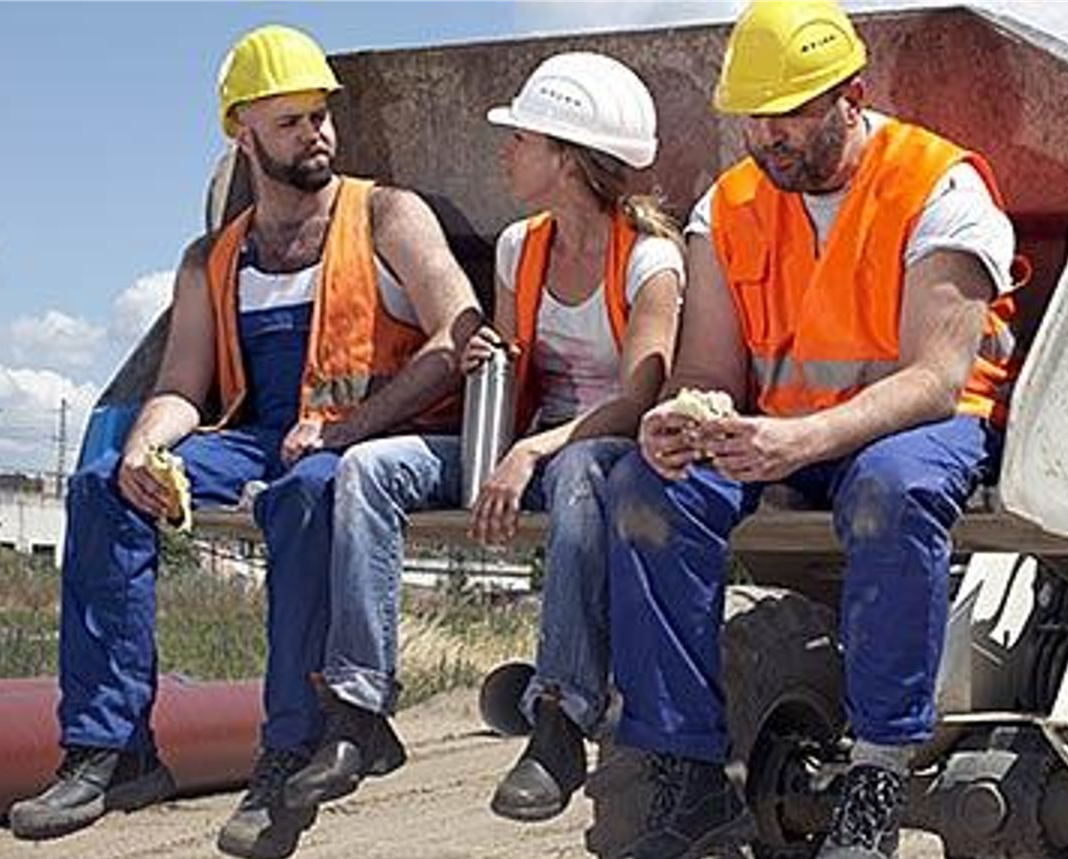
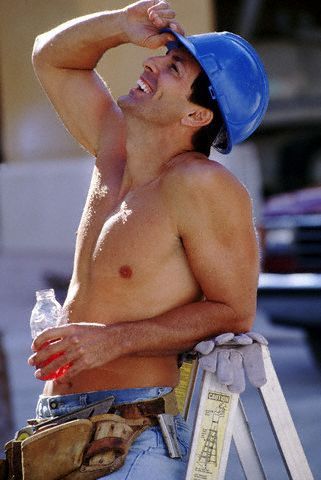
Celebrating LGBTQ Workers On Labor Day
Pride at Work
NCLR: Workers’ Rights Are LGBTQ Rights
HRC: The Lesson of Labor Day
Time Mag: Here's Why We Celebrate Labor
Day
Working Together: The Labor Movement and the Gay Rights
Movement
Queer Activism in the Labor Movement
Long, Powerful History Between Labor and LGBTQ Activists
LGBTQ History Pathway to Progress: The Founding of Pride
At Work
Despite these important strides, challenges persist.
LGBTQ workers still face discrimination, harassment, and
unequal treatment in some workplaces. Labor unions
continue to work towards greater inclusion and
protection for their LGBTQ members, often advocating for
collective bargaining agreements that address LGBTQ
rights and protections explicitly.
The history of LGBTQ individuals in the workers' rights
and labor union movement is marked by both challenges
and triumphs. From the early struggles of secrecy and
discrimination to the emergence of LGBTQ labor activism
and union involvement, progress has been made. The fight
for LGBTQ inclusion in labor unions continues,
reflecting the broader pursuit of social justice and
equality. As we reflect on this history, it is clear
that the collaboration between the LGBTQ rights and
labor movements has been instrumental in advancing the
cause of equality for all workers, regardless of their
sexual orientation or gender identity.
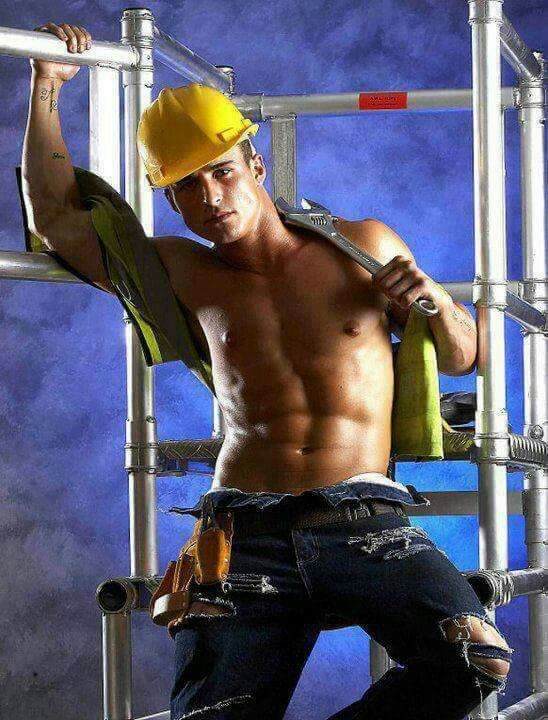
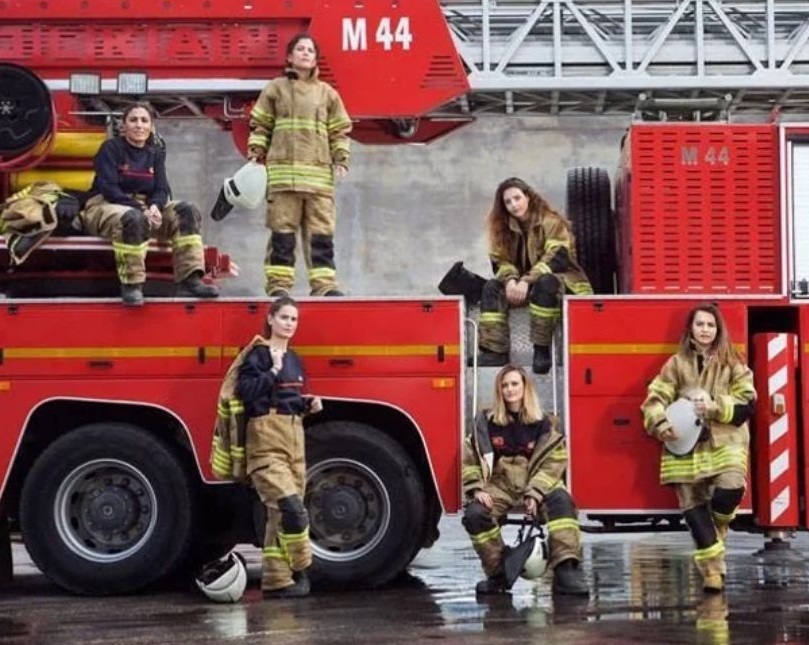
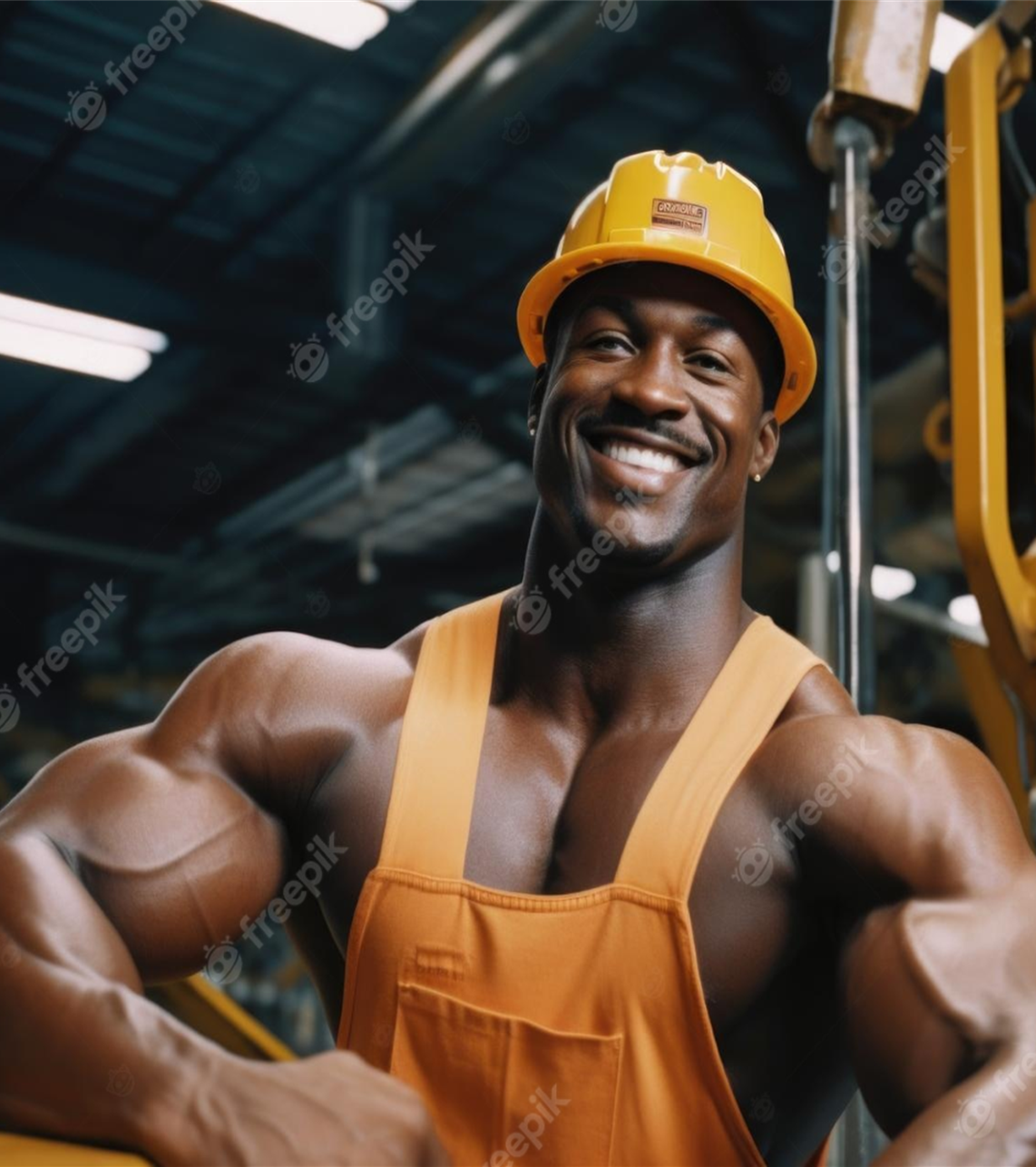
Video Talk: Coming Out in the Workplace
Zippia: LGBTQ Workplace Resource Guide
Info: LGBTQ Soldiers, Sailors and
Pilots
Lesbian Employee Outed and Hired
LGBTQ People at Work: Offensive Remarks Everyday Reality
Celebrating LGBTQ Workers On Labor Day
Pride at Work
Info: LGBTQ
Police Officers
ABC News: Historic Ruling
on LGBTQ Employment Discrimination
America's Reaction:
Supreme Court Ruling in Favor of LGBTQ Worker's Rights
The
Lesson of Labor Day
The shared work of the LGBTQ community and the labor
movement dates back to the days of Harvey Milk.
As Labor Day arrives and we make plans to fire up the
grill or head out for a last round of school shopping,
let’s also remember what the long weekend is really
about ― the dignity of workers and the critical role the
labor movement has played in ensuring equality.
This Labor Day I will be thinking with gratitude of our
many friends and allies in the labor movement who have
stood shoulder to shoulder with us for LGBTQ equality.
We are more powerful when we work together toward the
shared goals of equality, racial justice, fair wages,
health care and policies that support all of us and our
families.
I am thinking of Kelly, the Milwaukee high school
teacher, who, on the day the Trump administration
withdrew critical US Departments of Justice and
Education guidance protecting vulnerable transgender
students, hung one of HRC Foundation’s “Protect Trans
Kids” posters in her classroom. If her students are
harassed or bullied for being LGBTQ ― or Muslim, or
Jewish, or immigrant or black ― Kelly is there for them.
She uses her strong voice to stand up for justice, and
can do so, in no small part, because she is a member of
her union. “My students need me, my school and my
community need me and I need the solidarity of my
co-workers and our union to be fierce advocates for kids
who most need us and great schools for all our young
people.”
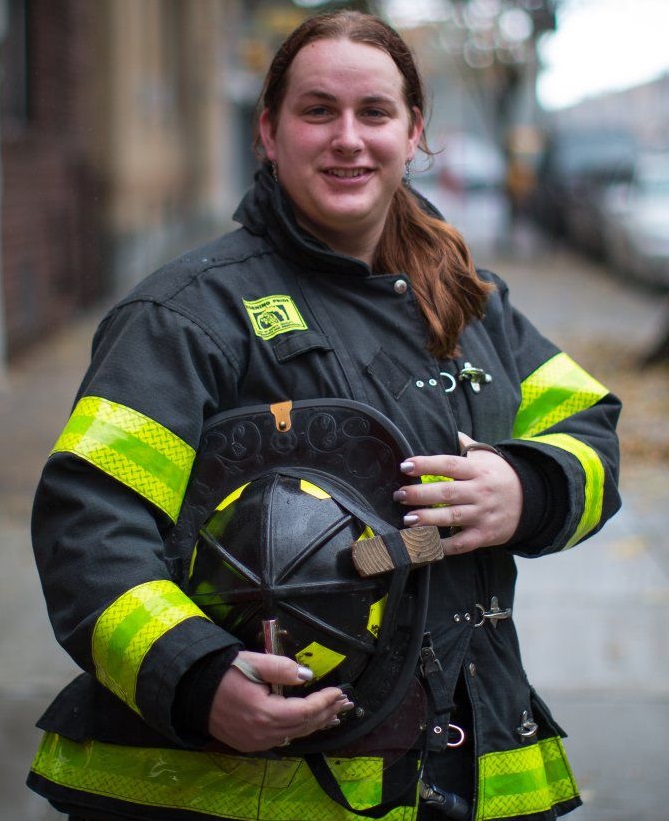


Gays At Work...In the Closet
Resources for LGBTQ Inclusion in the Trades
Researchers Say There Is a 'Gay Glass
Ceiling' in Corporate Leadership
Velvet Jobs: LGBTQ Career Resource Guide
Transgender Issues: Transitioning in the Workplace
Work Related Stressors Among LGBTQ Workers
LGBTQ History Pathway to Progress: The Founding of Pride
At Work
Rainbow-Collar Jobs: Occupational Segregation by Sexual
Orientation
Chronicle of Higher
Education: Interviewing While LGBTQ
LGBTQ People at Work: Offensive Remarks Everyday Reality
Pride Not Prejudice: Discrimination in the Workplace
GLAAD: Importance of LGBTQ Equality in the Workplace
LGBTQ Workers in the Labor Market
I will be thinking of Andres, a proud transgender man, a
loving son and a brother. After nearly a decade in his
position at a law firm, Andres came out to his
co-workers and announced he would begin transitioning ―
and was able to do so because his union fought to ensure
his company had an insurance contract that explicitly
affirmed coverage for transgender people, without
exclusion of the medically-necessary care that he needs.
I look to the incredible leadership of Maria Patterson
and SEIU’s Lavender Caucus in Sacramento, where their
95,000 members stood strong so that their transgender
California state employee members would have
transgender-inclusive health coverage.
While the shared work of the LGBTQ community and the
labor movement dates back to the days of Harvey Milk,
the importance of working together back then is just as
urgent now. The Trump-Pence administration continues to
advance from the highest levels in government it’s
anti-LGBTQ, anti-worker, and anti-family agenda. We in
the LGBTQ community have been raising our voices for
immigrant rights, for racial justice, for health care
and against hateful Trump-Pence policies that target
Muslims one day, and LGBTQ youth the next.
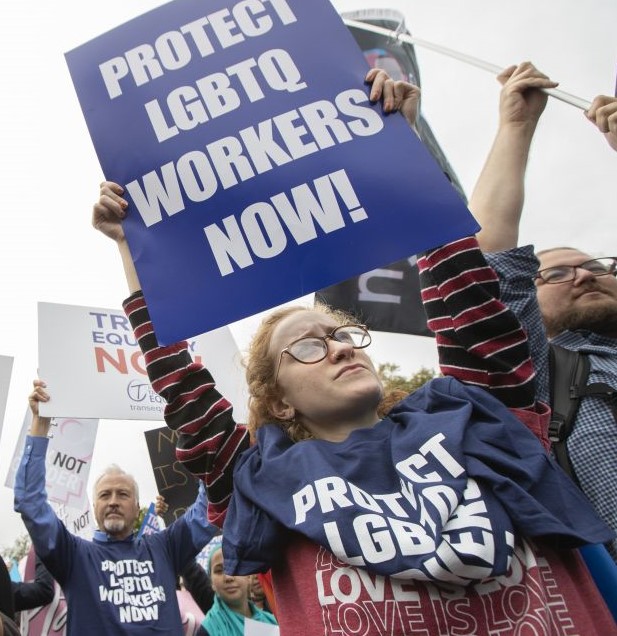
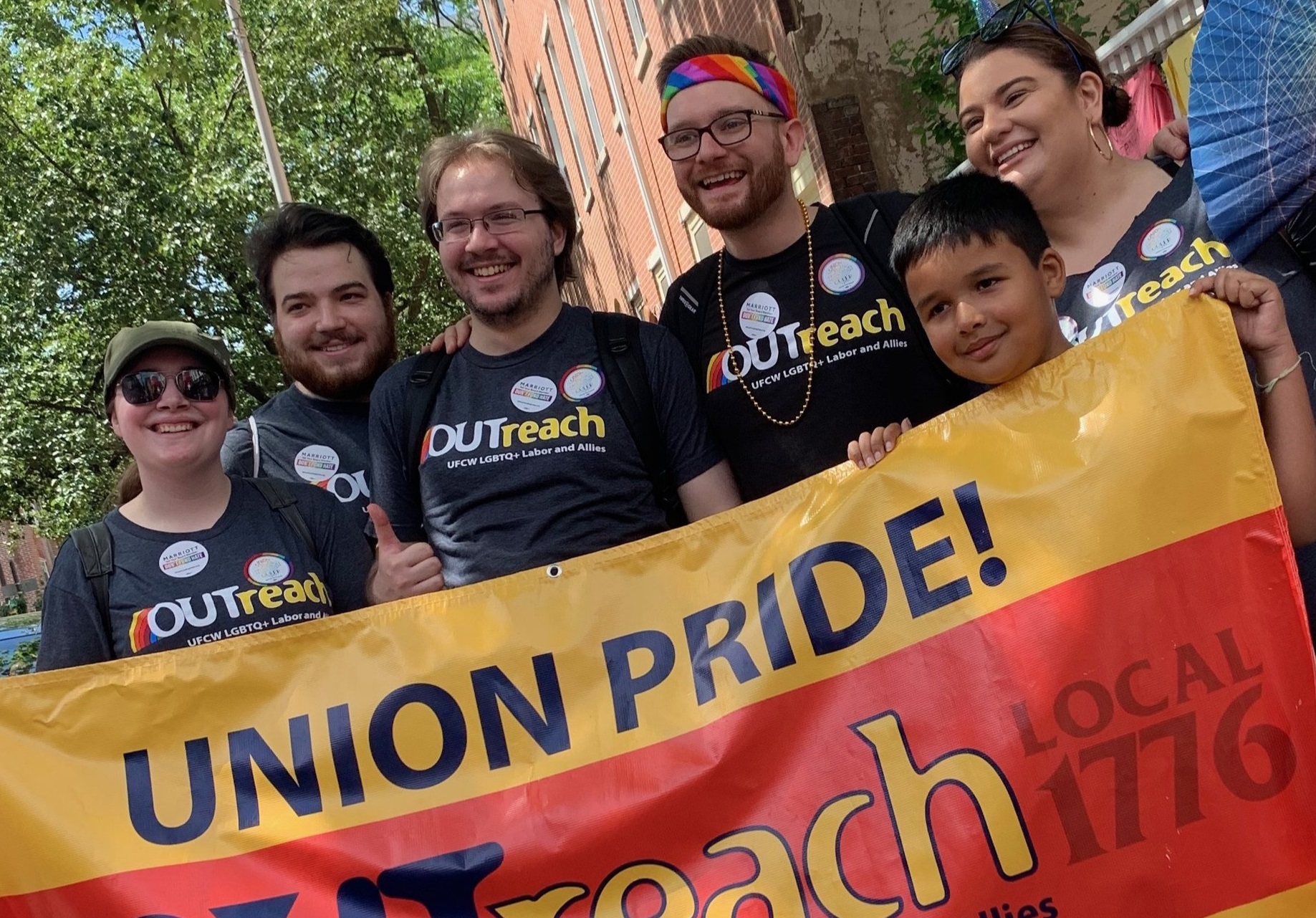

Supreme Court Landmark Decision: Illegal to Discriminate
Based on Sexual Orientation
LGBTQ Nation: Supreme Court Rules in Favor of LGBTQ
Rights in Landmark Decision
Advocate: Supreme Court Rules LGBTQ Discrimination is
Illegal
ABC News: Historic Ruling
on LGBTQ Employment Discrimination
America's Reaction:
Supreme Court Ruling in Favor of LGBTQ Worker's Rights
NBC News: In Landmark Case, Supreme Court Rules in Favor
of LGBTQ Worker Protection
Huff Post: Supreme Court Says Firing Someone for Being
Gay is Wrong
CBS News: Supreme Court
Ruling Protects LGBTQ Workers
SCOTUS Pro-LGBTQ Ruling:
Activists, Politicians, Celebs Rejoice
We work together because LGBTQ people are workers,
immigrants, people of color, people of all faiths and
all genders, and we are committed to standing up for the
full diversity of the LGBTQ community.
That diversity includes many workers living paycheck to
paycheck, and feeling left behind in this economy. The
Washington Post recently reported that half of the jobs
in the US pay less than $18 an hour ― and those jobs are
disproportionately held by women and people of color and
include, of course, many workers who are LGBTQ.
In the Trump-Pence era, unions are needed now more than
ever. This Labor Day, let us raise our voices and
remember that America needs unions to negotiate wages
and benefits that support working families and better
working conditions ― like safe staff-to-patient ratios
in hospitals and smaller school class sizes that help
students succeed.
When working people have the opportunity to speak up
together through unions, we make progress that benefits
everyone ― like affordable health care, paid leave, and
a higher minimum wage, for opportunity and
non-discrimination. In unions we have powerful allies
for fairness and equity for all of us
[Source: Advocate]
It Seems Almost Unreal:
LGBTQ People Respond to Supreme Court Ruling
NPR: Supremes Court
Delivers Major Victory to LGBTQ Employees
Coming Out From Behind the Badge
Info: LGBTQ Athletes
Sexy Australian
Firefighters and Their Pets
Researchers Say There Is a 'Gay Glass
Ceiling' in Corporate Leadership
Velvet Jobs: LGBTQ Career Resource Guide
Transgender Issues: Transitioning in the Workplace
Info: LGBTQ
Career Concerns
New LGBTQ Workplace Has Arrived
Info:
LGBTQ and Labor Unions
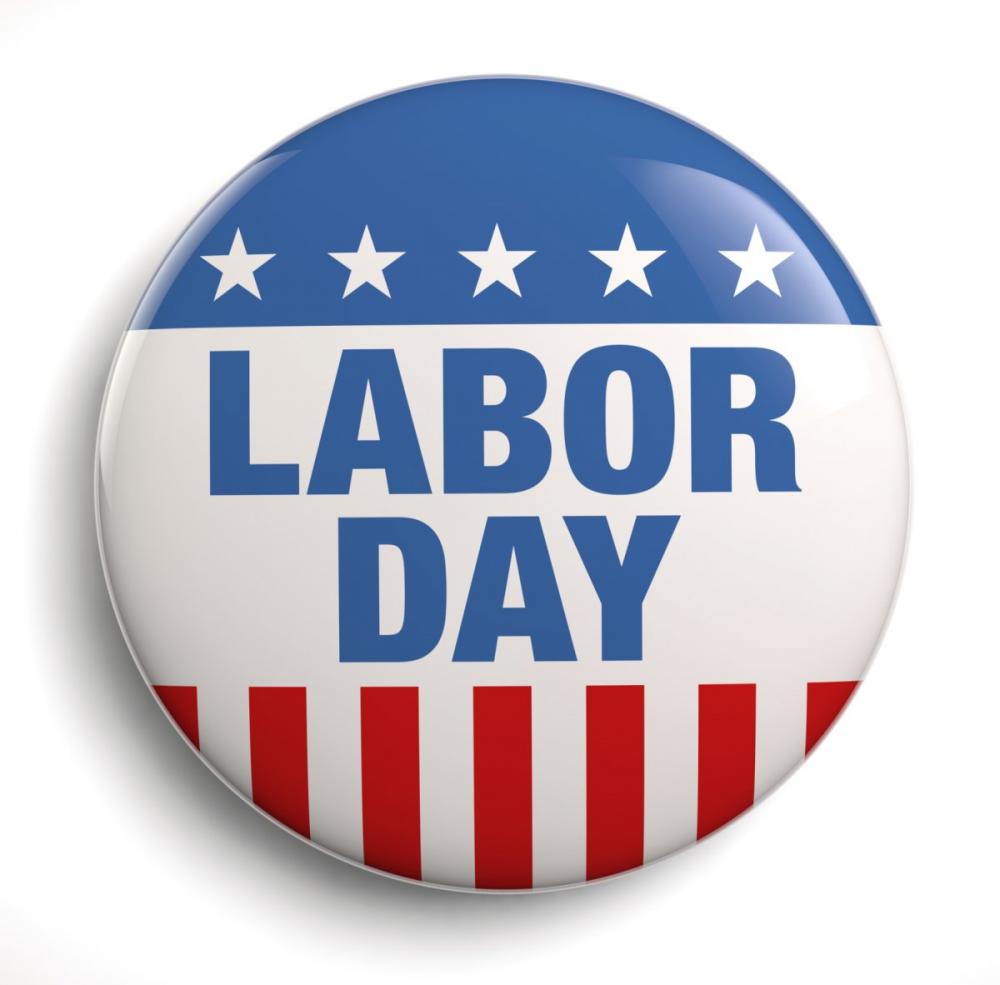
Trade Unions and LGBTQ Activism
In the several years there has been increased interest,
both in the academy and in the broad left, in notions of
solidarity between lesbians, gay men, bisexual and
transgender people and the organized working class. This
has been spurred on by the release of the film "Pride,"
which details how a group of activists formed Lesbians
and Gays Support the Miners during the 1984-85 strike
against Margaret Thatcher’s pit closures. The recent
publication of Miriam Frank’s detailed narrative of
LGBTQ people organizing within and alongside unions in
the United States is therefore timely.
The position of LGBTQ people in the US has shifted
greatly over the past few decades, especially in terms
of the ability to organize openly in workplaces and
unions. From gaining visibility in the 1960s and 1970s
to the fight within the US military to repeal
discriminatory “Don’t Ask, Don’t Tell” laws, Frank’s
goal is to provide a broad narrative tracing the
overlooked history of workplace struggle in LGBTQ
movements. She draws together an exceptional number of
examples and anecdotes from the past half century and
today. The chronology Frank provides of LGBTQ labor
activism before the main body of text highlights the
depth of this research. Over two decades she interviewed
over 100 people from around the US, many of whom were
activists central to labor disputes. Oral histories of
their struggles prove especially humanizing, as
activists relay their own stories, aware that the
stories of many of their colleagues and comrades have
previously been overlooked because of untimely deaths
due to AIDS as well as a lack of scholarship.
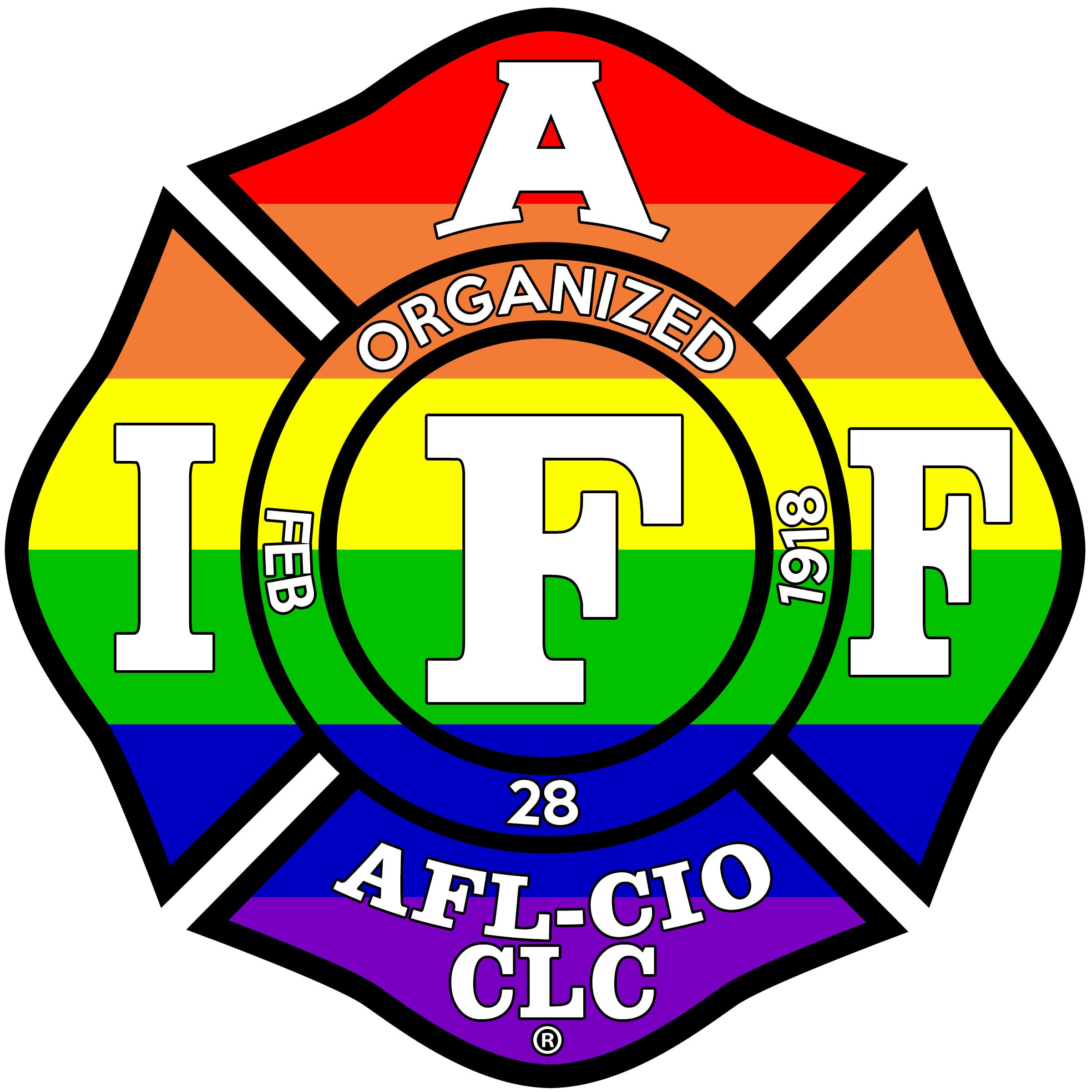
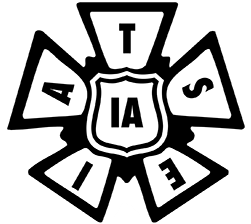 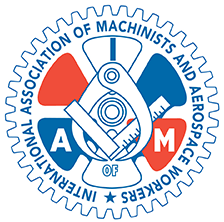 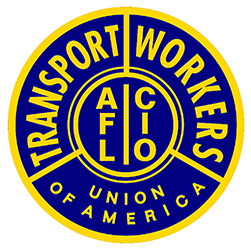 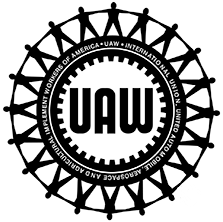
Resources for LGBTQ Inclusion in the Trades
Blue Collar Jobs Explained
Chronicle of Higher
Education: Interviewing While LGBTQ
Info: LGBTQ
Protectors
LGBTQ People at Work: Offensive Remarks Everyday Reality
Pride Not Prejudice: Discrimination in the Workplace
GLAAD: Importance of LGBTQ Equality in the Workplace
Info: LGBTQ Business
NBC News: In Landmark Case, Supreme Court Rules in Favor
of LGBTQ Worker Protection
Huff Post: Supreme Court Says Firing Someone for Being
Gay is Wrong
LGBTQ Police Officers Facing Discrimination
New York's LGBTQ Firefighters Share Their Coming Out
Stories
Miriam Frank provides a broad yet thorough history of
trade union activism from an LGBTQ perspective, from
union locals and rank and file activists, to national
executives and their radical challengers. She
prioritizes those stories that highlight the strengths
that come from solidarity, without undermining the
necessary criticisms of the trade union movement when it
has fallen short.
Several chapters of her report are of particular
interest to activists and historians alike. The chapter
on coalition building during the 1970s provides an
inspirational account of the ways in which LGBTQ people
fought to build solidarity with other oppressed groups
and workers who faced exploitation. One solid example
was the 20-year boycott of Coors Beer, which found great
success in San Francisco in the early 1970s, where gay
rights activist Harvey Milk and the Bay Area Gay
Liberation group organized solidarity with Teamsters.
Black and Latino activists had been boycotting Coors for
several years in protest at the company’s refusal to
implement affirmative action policies. LGBTQ activists
got involved to support beer delivery drivers in the
Teamsters union striking to extend their contracts.
Almost every gay bar in San Francisco supported the
boycott and Coors’s profits dropped dramatically in
California. In exchange the union came to support openly
gay workers becoming drivers. The boycott extended into
a two decade battle when Coors launched a union busting
campaign at its brewery a few years later. LGBTQ people
continued their support throughout and found new reasons
to boycott when it emerged that Coors forced their
workers to undertake lie detector tests, asking
questions about their sexuality.

Gays At Work...In the Closet
Resources for LGBTQ Inclusion in the Trades
Researchers Say There Is a 'Gay Glass
Ceiling' in Corporate Leadership
Velvet Jobs: LGBTQ Career Resource Guide
Transgender Issues: Transitioning in the Workplace
Work Related Stressors Among LGBTQ Workers
Rainbow-Collar Jobs: Occupational Segregation by Sexual
Orientation
Chronicle of Higher
Education: Interviewing While LGBTQ
LGBTQ People at Work: Offensive Remarks Everyday Reality
Pride Not Prejudice: Discrimination in the Workplace
GLAAD: Importance of LGBTQ Equality in the Workplace
LGBTQ Workers in the Labor Market
Of special interest is the way in which Frank manages to
illustrate the class contradictions of LGBTQ-owned
businesses and spaces. She provides examples from the
1970s and 1980s in San Francisco where openly gay and
lesbian entrepreneurs established businesses and hired
other LGBTQ people to work. However, as Frank notes
these workplaces often overlooked standard employment
regulations such as minimum wage requirements and
overtime as a trade off for a workplace in which
employees could be open about their sexuality without
fear of reprisal. In the case of one lesbian auto repair
shop this meant working on commission with no base
weekly pay, sacrificing earnings to train others and no
holiday pay when the owners shut the shop for weeks at a
time. Bitter fights for unionization in bars, cafes and
restaurants took place especially after successful
union/LGBTQ alliances were formed to defeat Proposition
6, which sought to ban gay teachers and their allies
from working in public schools in 1978.
Frank charts the centrality of unions in AIDS activism
during the 1980s and 1990s, in addition to the ways in
which the epidemic helped to solidify class distinctions
within LGBTQ communities. Unions fought hard for mutual
partner benefits necessary for access to health care and
insurance provisions for same-sex partners. The author
notes that the first instance of domestic partner
benefits came about during contract negotiations at the
Village Voice in 1982. However, this was not only a win
for LGBTQ workers, unmarried straight workers gained
protection for their partners too.
LGBTQ History Pathway to Progress: The Founding of Pride
At Work
Work Related Stressors Among LGBTQ Workers
Rainbow-Collar Jobs: Occupational Segregation by Sexual
Orientation
LGBTQ Workers in the Labor Market
Info: LGBTQ
First Responders
Gays At Work...In the Closet
Supreme Court Landmark Decision: Illegal to Discriminate
Based on Sexual Orientation
LGBTQ Nation: Supreme Court Rules in Favor of LGBTQ
Rights in Landmark Decision
Advocate: Supreme Court Rules LGBTQ Discrimination is
Illegal
Info: LGBTQ
Workplace
History of LGBTQ in Policing
LGBTQ Firefighter Is Putting Out Fires And Stereotypes
Out in the Union has other strengths. The book explains
in great detail, but in an accessible way, how unions
organize in the United States more generally, and the
practices and history specific to the country. It
therefore provides an informative introduction to class
struggle and union organization which will be useful to
anyone seeking to understand the particular union and
workplace structures in the US. Frank does not let
slow-moving union leaders off the hook, noting that many
of the early fights for LGBTQ visibility in unions
coincided with the establishment of radical caucuses and
rank and file challenges to careerist leaders. She draws
attention to the fact that reactionary ideas can be
broken down through class struggle but does not shy from
illuminating the homophobia experienced by LGBTQ workers
at the hands of their co-workers and bosses. Frank
demonstrates the abuse suffered by LGBTQ people,
especially lesbians, who came out to their unionized
co-workers. One of the strengths of the book comes from
the fact that Frank spent years as a union organizer,
writing a handbook for LGBTQ workers and trade
unionists.


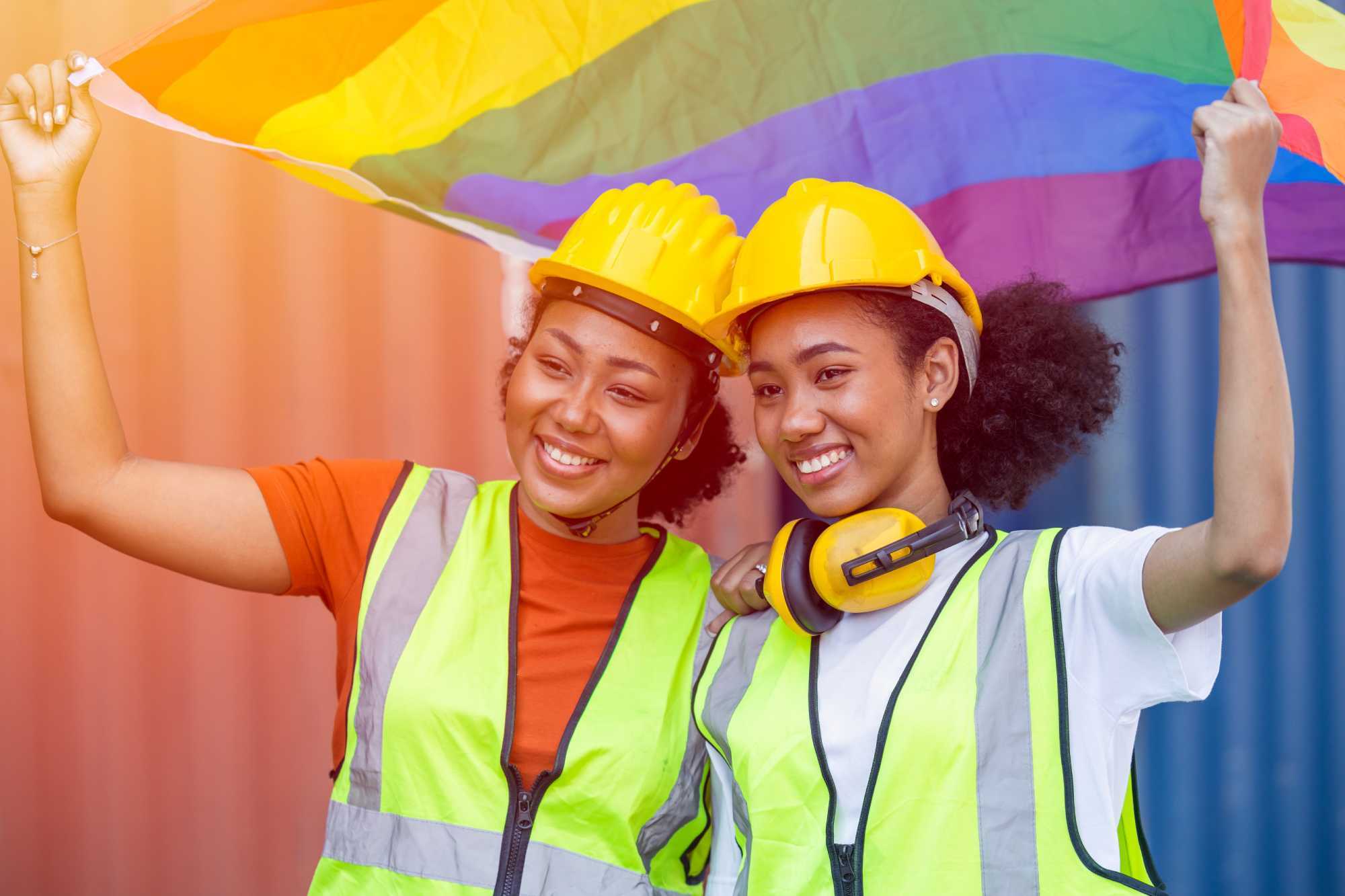
By the author’s own admission Out in the Union is not
comprehensive. There is a lack of examples from southern
states where workplace organization has been
historically weakened by anti-union legislation.
Nevertheless, Frank succeeds in providing rich examples
of the LGBTQ organization within workplaces elsewhere.
Frank concludes by underlining the importance of unions
to recent struggles for marriage equality. She argues
that coalitions formed in the 1970s to battle right-wing
attempts to roll back gay rights were the roots of these
more recent campaigns. The fight against workplace
discrimination continues today. While same-sex marriage
is now federally recognized, some 32 states (a majority)
still discriminate in some way against LGBTQ people. For
example, LGBTQ people in some states have no federal
protections in housing, education and employment. This
book is an important addition to our understanding of
the history of sexuality, and the workplace activism
necessary to future movements seeking to defeat
discrimination.
[Source: Josh Hollands Commentary (Oct 2015) on Miriam
Frank's Report: Out in the Union: A Labor History of
Queer America, Temple University Press, 2014]
Reuters: Supreme Court Endorses LGBTQ Worker Protections
CBS News: Existing Federal Civil Rights Laws Protect
LGBTQ Workers
Monster: Best Companies for LGBTQ Workers
Info: LGBTQ
Fire Fighters
Being Black and Gay in the Workplace
Navigating the
Gender Landscape at Work
Advocate: The Gay and
Trans People Who Took Their Cases to the Supreme Court
LA Times: Supreme Court
Ruling Protects LGBTQ Rights
Info: LGBTQ
Job Market
Time Mag: Here's Why We Celebrate Labor
Day
ABC News: Supreme Court
Bans LGBTQ Employment Discrimination
International EMS and
Firefighters Pride Alliance
What Special Challenges Are Faced by Gay
Firefighters?
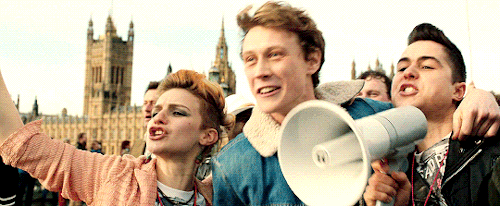
Lesbians and Gays Supporting Miners
True Story
It's the
summer of 1984, Margaret Thatcher is in power and the
National Union of Mineworkers is on strike, prompting a
London-based group of gay and lesbian activists to raise
money to support the strikers' families. Initially
rebuffed by the Union, the group identifies a tiny
mining village in Wales and sets off to make their
donation in person. The film depicts this real-life
story starring Imelda Staunton (Harry Potter), Bill
Nighy (Love Actually), Andrew Scott (Fleabag), and
Dominic West (The Affair). It is a powerful story of
identity and union through standing together.
Pride is a 2014 British historical comedy-drama film
written by Stephen Beresford and directed by Matthew
Warchus. Based on a true story, it depicts a group of
lesbian and gay activists who raised money to help
families affected by the British miners' strike in 1984,
at the outset of what would become the Lesbians and Gays
Support the Miners campaign. The film was nominated for
the Golden Globe Award for Best Motion Picture and for
the BAFTA for Best British Film, Best Actress in a
Supporting Role for Imelda Staunton and for Outstanding
Debut by a British Writer, Director or Producer.
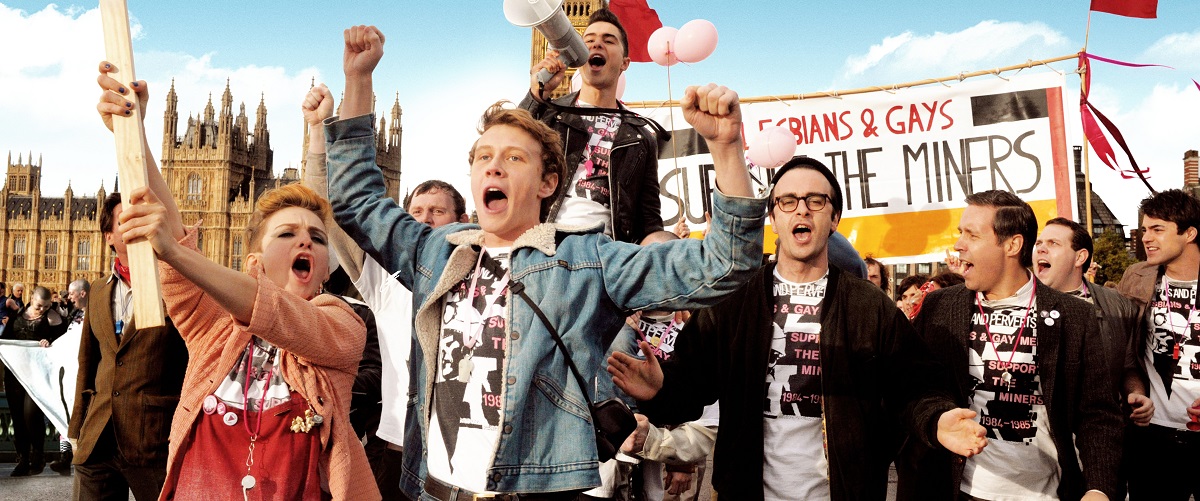
Pride Film Official Trailer
Pride Motion Picture: London Miners and LGBTQ Activists
Unite for Labor March
LGBTQ Activists Support London Miners' Strike
Movie Clip: Pride (2014)
Pride Movie: Real Life Inspiration
Pride: British Movie About Lesbians & Gays Supporting
Striking Miners
Pride Film Official Trailer
The Plot
Upon
watching the news about the miners' strike, gay activist
Mark Ashton realizes that the police have stopped
harassing the gay community because their attention is
elsewhere. He spontaneously arranges a bucket collection
for the miners during the Gay Pride Parade in London.
Encouraged by the success, he founds "Lesbians and Gays
Support the Miners". Among its first members are
20-year-old closeted student Joe Cooper and an older gay
couple Gethin and Jonathan, whose bookshop they use as
headquarters.




LGSM faces opposition from the mining community who do
not wish to associate with them, as well as within the
gay community who feel that the miners have mistreated
them in the past. Frustrated by the lack of response,
the activists instead decide to take their donations
directly to a small mining village in Wales. Dai
Donovan, spokesperson for the miners in Onllwyn, comes
to London to meet their new allies. Though he is
startled by the revelation of what "L" and "G" stand for
in their name, he expresses his gratitude in a short,
eloquent speech at a gay bar, and the cause takes off.




True Story: Pride Movie Premiere
Pride Movie Premiere: Red Carpet Interviews
Interview: Lesbians & Gays Support Miners
Mike Jackson: Lesbian and Gays Support the Miners
British Film: Pride (2014)
IMDB:
Pride (2014 British Film)
The Women's Support group in the small Welsh village,
led by Hefina Headon and Maureen Barry, debate whether
to invite LGSM to the village as a thank you.
Hefina, and her supporters, favor gratitude from all
camps, while Maureen's supporters consider the gays
abhorrent. First-time volunteer Siân James speaks up
fiercely in favor of inviting LGSM and is asked to join
the committee. When LGSM arrives, they are met
with a frosty reception at first. After a series of
conflicts, attitudes soon change, and the two groups
unite.
On the day of the 1985 Gay Pride Parade, Mark leads LGSM
to the Parade, where they are joined by hundreds of
miners in a show of solidarity. The closing scenes
reveal that consequently the Labour Party incorporated
rights for gays and lesbians in their party programme
due in part to a massive vote lodged by the National
Union of Mineworkers.
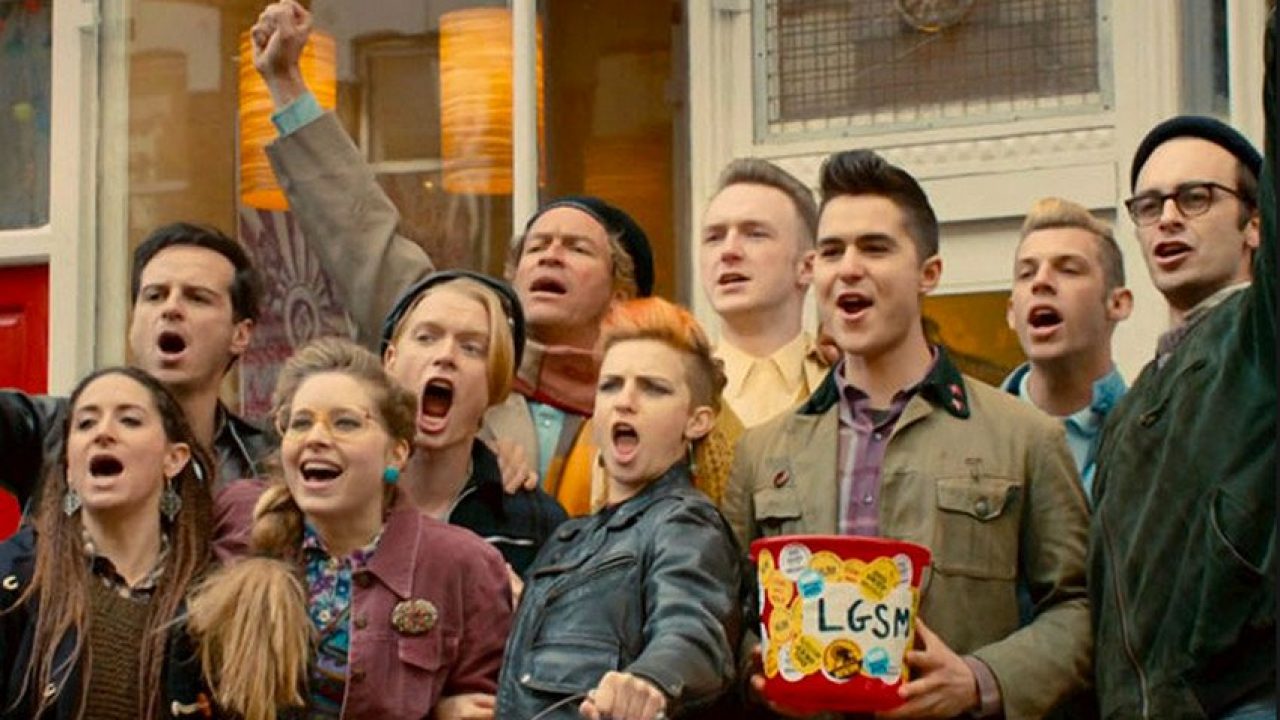
Video Talk: Coming Out in the Workplace
Zippia: LGBTQ Workplace Resource Guide
Lesbian Employee Outed and Hired
LGBTQ People at Work: Offensive Remarks Everyday Reality
New LGBTQ Workplace Has Arrived
Info:
LGBTQ and Labor Unions
Being Black and Gay in the Workplace
Navigating the
Gender Landscape at Work
Legal Protection in the Workplace
In 2015,
the US Supreme Court determined in Obergefell v. Hodges
that same-sex couples have a Constitutional right to
marry nationwide. With that ruling, businesses must
provide marital benefits to an employee’s same-sex
spouse as marital benefits (not a different system of
coverage).
Federal laws offer protections from workplace
discrimination on the basis of race, color, religion,
sex, national origin, age, and disability... but do not
offer these same protections on the basis of sexual
orientation or gender identity.
Some states have passed laws to establish workplace
protections for LGBTQ employees… but only 22 states
explicitly provide workplace protections on the basis of
sexual orientation… and 20 on the basis of gender
identity.
Despite
this patchwork of state laws and federal guidance,
private sector employers have far outpaced lawmakers in
the implementation of fully inclusive non-discrimination
polices.
Update....
On June 15, 2020, the US Supreme Court issued a landmark
ruling upholding LGBTQ workers rights and making LGBTQ
employment discrimination illegal nationwide.
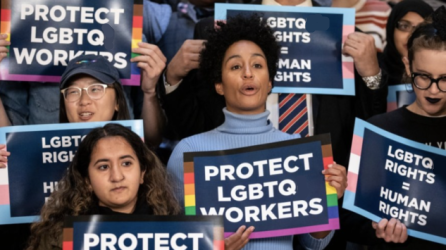

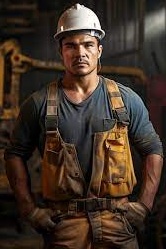
Researchers Say There Is a 'Gay Glass
Ceiling' in Corporate Leadership
Velvet Jobs: LGBTQ Career Resource Guide
Transgender Issues: Transitioning in the Workplace
Chronicle of Higher
Education: Interviewing While LGBTQ
LGBTQ People at Work: Offensive Remarks Everyday Reality
Pride Not Prejudice: Discrimination in the Workplace
GLAAD: Importance of LGBTQ Equality in the Workplace
Supreme Court Rules
in Favor of LGBTQ Employment Rights
On June 15, 2020, the US Supreme Court issued a landmark
decision, penned by Neil Gorsuch, a conservative justice
appointed by President Trump, deciding that “An employer
who fires an individual merely for being gay or
transgender violates Title VII of the 1964 Civil Rights
Act.” And Justice Neil Gorsuch went on to say, “An
individual’s homosexuality or transgender status is not
relevant to employment decisions. That’s because it is
impossible to discriminate against a person for being
homosexual or transgender without discriminating against
that individual based on sex.”
Everyone from Barack Obama and Pete Buttigieg to Black
Lives Matter and the NCAA celebrated the momentous
Supreme Court decision on LGBTQ workplace
discrimination. And Americans across the nation
celebrated this historic ruling. Kamala Harris
said, "This is a major victory for LGBTQ rights. No one
should be discriminated against because of who they are
or who they love." Jared Polis said, "No matter who you
are or who you love your work is valued in the United
States. Thank you to the Supreme Court for making the
right decision for equality, inclusivity." Janet Mock
said, "A victory hard won in the courts and on the
streets. Grateful to the lawyers, organizers and
activists but most grateful to those who had to live
stealth or closeted, who lost jobs for living their
truth, who left parts of themselves at their employers'
door." And Gerald Bostock said, "Today, we can go
to work without the fear of being fired for who we are
and who we love."
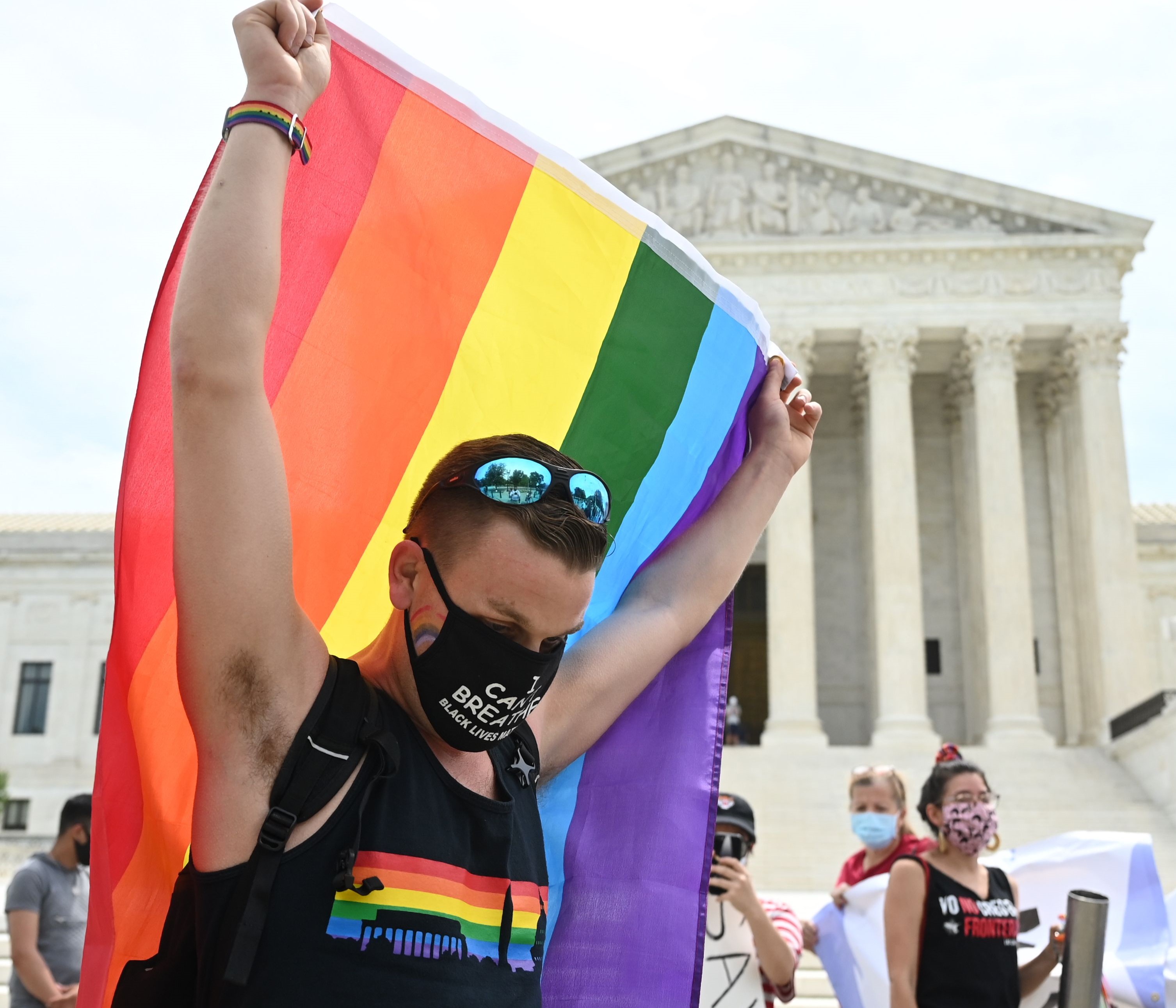



It Seems Almost Unreal:
LGBTQ People Respond to Supreme Court Ruling
NPR: Supremes Court
Delivers Major Victory to LGBTQ Employees
Advocate: The Gay and
Trans People Who Took Their Cases to the Supreme Court
LA Times: Supreme Court
Ruling Protects LGBTQ Rights
ABC News: Supreme Court
Bans LGBTQ Employment Discrimination
Reuters: Supreme Court Endorses LGBTQ Worker Protections
CBS News: Existing Federal Civil Rights Laws Protect
LGBTQ Workers
Monster: Best Companies for LGBTQ Workers
“Today, we must decide whether an employer can fire
someone simply for being homosexual or transgender. The
answer is clear. An employer who fires an individual for
being homosexual or transgender fires that person for
traits or actions it would not have questioned in
members of a different sex. Sex plays a necessary and
indistinguishable role in the decision, exactly what
Title VII forbids,” the decision reads. “An employer who
fires an individual merely for being gay or transgender
violates Title VII.”
“Those who adopted the Civil Rights Act might not have
anticipated their work would lead to this particular
result. Likely, they weren’t thinking about many of the
Act’s consequences that have become apparent over the
years, including its prohibition against discrimination
on the basis of motherhood or its ban on the sexual
harassment of male employees.”
“But the limits of the drafters’ imagination supply no
reason to ignore the law’s demands,” Gorsuch continued.
“When the express terms of a statute give us one answer
and extratextual considerations suggest another, it’s no
contest. Only the written word is the law, and all
persons are entitled to its benefit.” The ruling was
decided by a 6-4 vote. Gorsuch was joined
by Justices Elena Kagan, Sonia Sotomayor, Ruth Bader
Ginsburg, Stephen Breyer, and Chief Justice John
Roberts.
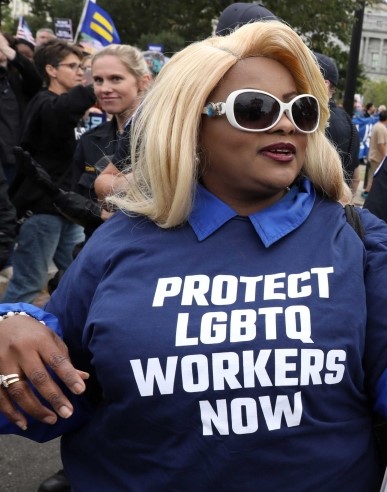
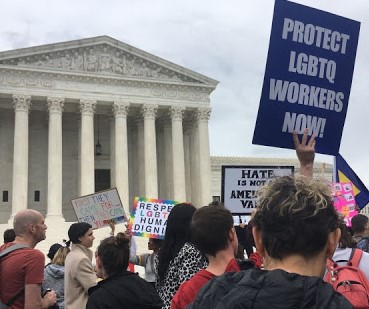
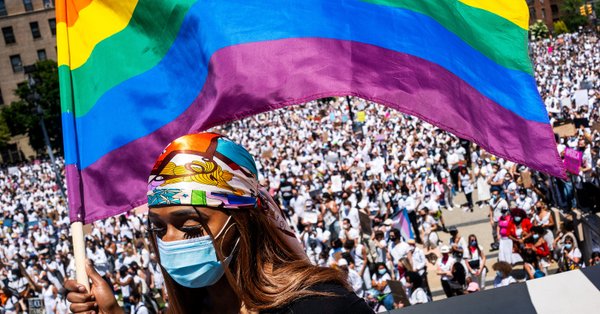
Some who
responded reminded us that this was just another step in
the long road to full equality. Pete Buttigieg said,
"As of sunup this morning, many parts of America did not
fully protect queer Americans from workplace
discrimination, despite the Civil Rights Act. This is a
major step. Make no mistake—a federal Equality Act is
still urgently needed. The struggle for equality did not
end with marriage, nor did it end today. Conversion
therapy persists. Black trans women are at grave risk
daily. The administration is rolling back protections at
every turn." And Senator Tammy Baldwin said, "The SCOTUS
6-3 decision is a huge step forward for LGBTQ equality
in America. But we must keep marching for full equality
for every LGBTQ American across our country and work to
pass the Equality Act in the Senate."
[Source: LGBTQ
Nation, June 2020]


Celebrating LGBTQ Workers On Labor Day
Pride at Work
Gays At Work...In the Closet
Resources for LGBTQ Inclusion in the Trades
Time Mag: Here's Why We Celebrate Labor
Day
Researchers Say There Is a 'Gay Glass
Ceiling' in Corporate Leadership
NCLR: Workers’ Rights Are LGBTQ Rights
HRC: The Lesson of Labor Day
Velvet Jobs: LGBTQ Career Resource Guide
Transgender Issues: Transitioning in the Workplace
Work Related Stressors Among LGBTQ Workers
Working Together: The Labor Movement and the Gay Rights
Movement
Queer Activism in the Labor Movement
Rainbow-Collar Jobs: Occupational Segregation by Sexual
Orientation
Chronicle of Higher
Education: Interviewing While LGBTQ
LGBTQ People at Work: Offensive Remarks Everyday Reality
Long, Powerful History Between Labor and LGBTQ Activists
Pride Not Prejudice: Discrimination in the Workplace
GLAAD: Importance of LGBTQ Equality in the Workplace
LGBTQ Workers in the Labor Market
HOME
QUEER CAFE
│ LGBTQ Information Network │ Established 2017 |